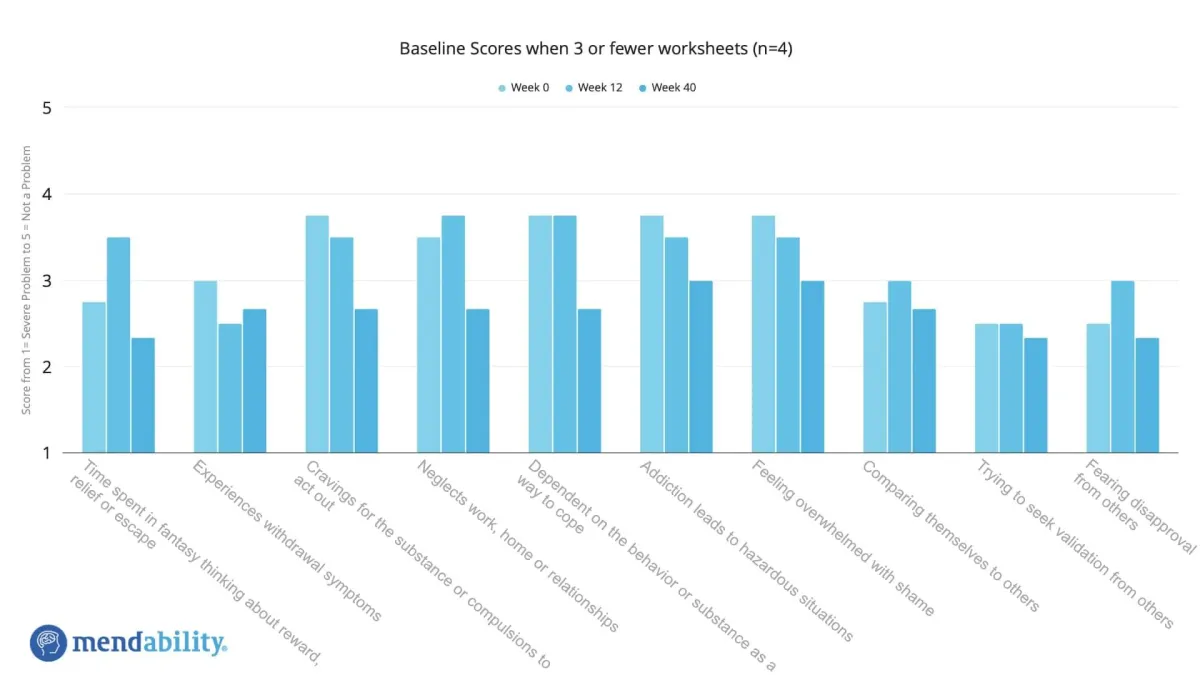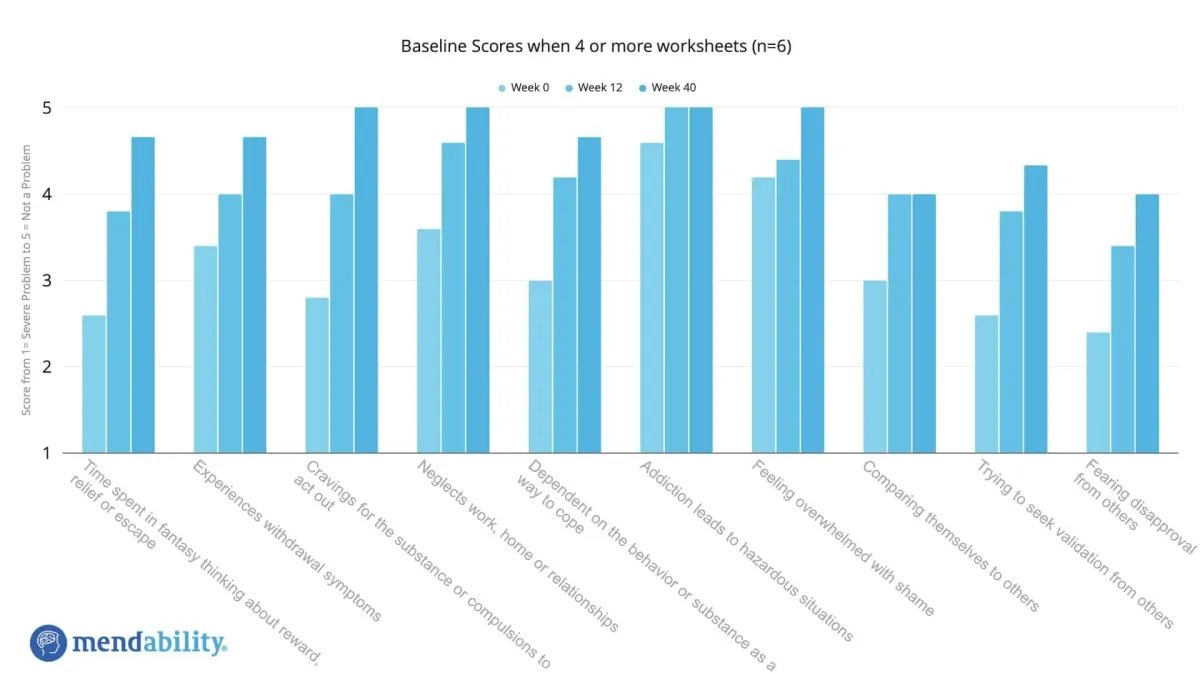Sensory Enrichment Therapy for Addiction
12-Week Pilot Results

10 of their most stable outpatient clients
In Canada, an Outpatient Program Treatment Centre enrolled 10 of their most consistent clients in a 12-week pilot program with Mendability to see if Sensory Enrichment could help their brains compensate for addiction.
All clients had been stable in their symptoms and attended their other treatment appointments regularly.
10 questions to track
In this outpatient program pilot, we measured improvement by asking the participants to rate themselves in 10 questions, 1 being "severe problem" and 5 being "not a problem":
Time spent in fantasy thinking about the reward, relief or escape
Experiences withdrawal symptoms
Cravings for the substance or compulsions to act out
Neglects work, home or relationships because of the addiction
Dependent on the behavior or substance as a way to cope
Addiction leads to hazardous situations
Feeling overwhelmed with shame
Comparing themselves to others
Trying to seek validation from others
Feeling disapproval from others
2 groups
At the end of the pilot we divided the cohort into a:
• a low-participation group (n= 4), and
• a high-participation group (n=6).
The low participation group acted as a pseudo-control group.
2 periods
During the 3-month pilot: We asked the participants to rate themselves before the program started and at the end of the 12-week pilot.
6 months after the pilot: We also asked them to rate themselves 6 months later, to see if the improvements, if any, would stick.
Low-participation group

• Bar 1 shows the baseline scores on day O
• Bar 2 shows the scores at the end of the 12-week pilot
• Bar 3 shows the scores 6 months later
You will see that not much changed for the low participation group. If anything, the trend was a downward trend.
High-participation group

You will see significant changes in their scores.
Many of the questions are now in the 4 to 5 range, between "Maybe a problem" and "Not a problem".
This is huge.
Remember that this took place by doing 5 minutes of sensory enrichment protocols each day, for only 3 months.
But for many of us involved in the project, the big question was "does it stick?"
In many areas, not only did the improvements stick, but 6 months later, they continued to feel better.
Time spent in fantasy thinking about the reward, relief or escape
Experiences withdrawal symptoms
Cravings for the substance or compulsions to act out
Neglects work, home or relationships because of the addiction
Dependent on the behavior or substance as a way to cope
Addiction leads to hazardous situations
Feeling overwhelmed with shame
Comparing themselves to others
Trying to seek validation from others
Feeling disapproval from others
Interested in learning more?
Now, this is not a clinical trial. This is just Mendability and an addiction treatment centre gathering data, but the results are compelling.
If there is a research team out there interested in doing a clinical study with us, please reach out.
2011 - 2026 © Mendability - All Rights Reserved
